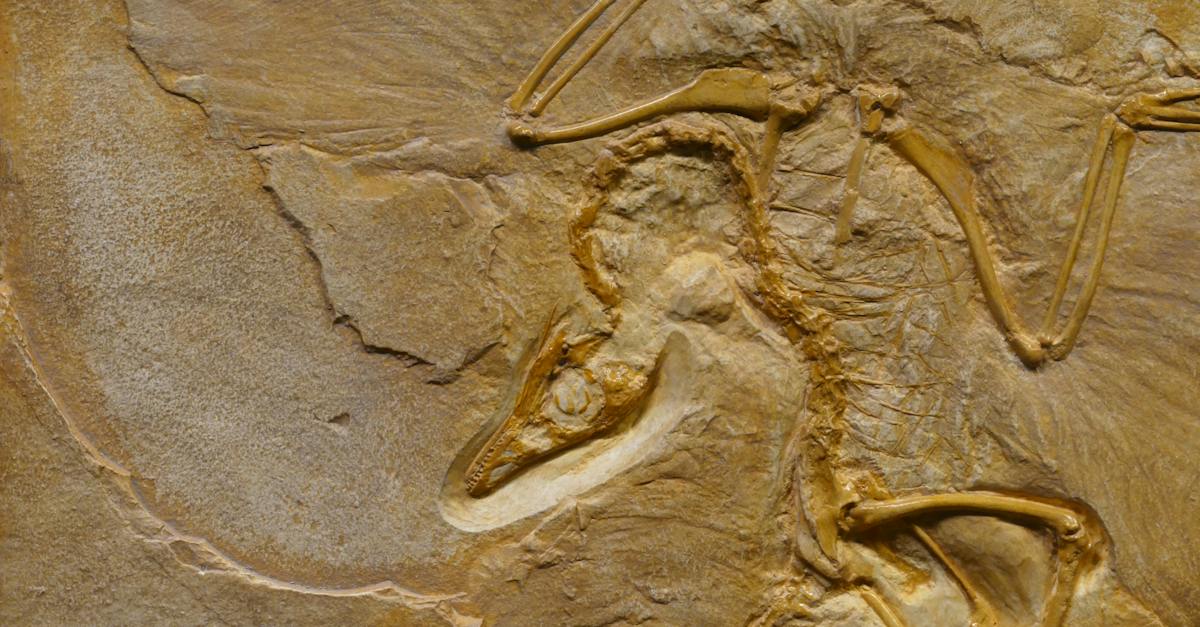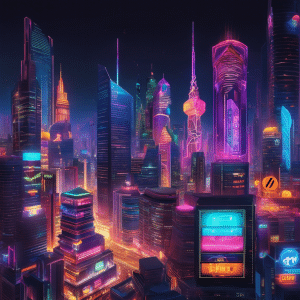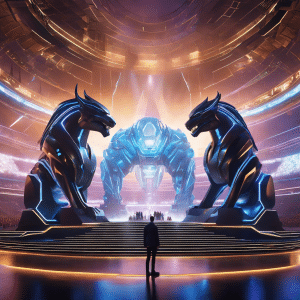Welcome to the exciting world of decentralized autonomous organizations (DAOs)! In this article, we will explore the future of DAOs and their evolution in the year 2024. As the blockchain technology continues to advance and gain mainstream adoption, DAOs are poised to revolutionize the way we collaborate, govern, and make decisions.
Imagine a world where organizations are run by smart contracts and algorithms, eliminating the need for traditional hierarchical structures. DAOs are decentralized entities that operate based on predefined rules and are governed by their community members. These organizations are transparent, secure, and autonomous, enabling participants to have a direct say in decision-making processes.
In this article, we will delve into the key trends and developments that are shaping the evolution of DAOs in 2024. From enhanced governance mechanisms to improved scalability, we will explore how DAOs are adapting to meet the needs of a rapidly changing digital landscape. Join us as we embark on a journey to discover the exciting possibilities that lie ahead for DAOs in the year 2024.
Key Trends in DAO Evolution 2024
As we look forward to the future of decentralized autonomous organizations (DAOs) in 2024, there are several key trends that are shaping their evolution. These trends have the potential to further enhance the collaborative and governance capabilities of DAOs, making them even more efficient and effective in achieving their objectives. Here are some of the key trends to watch out for:
1. Enhanced Governance Mechanisms: DAOs are continuously exploring innovative ways to improve governance mechanisms. Traditional voting systems are being replaced or complemented with more inclusive and transparent decision-making processes. This includes the use of quadratic voting, conviction voting, and futarchy, which allow community members to have a greater say in the decision-making process and ensure that the will of the majority is represented.
2. Improved Scalability: Scalability has been a challenge for DAOs, as the increasing number of participants and activities can strain the underlying blockchain infrastructure. However, advancements in layer 2 solutions, such as sidechains and state channels, are providing promising solutions to address this issue. These solutions enable DAOs to handle a higher volume of transactions and interactions, making them more scalable and capable of supporting larger communities.
3. Interoperability: In order to fully realize the potential of DAOs, interoperability between different blockchain networks and protocols is crucial. This allows DAOs to collaborate, share resources, and leverage the strengths of different platforms. The development of interoperability protocols, such as Polkadot and Cosmos, is enabling DAOs to seamlessly interact with each other and participate in cross-chain collaborations.
4. Tokenization of Assets: The tokenization of real-world assets is a trend that is gaining traction in the DAO space. By representing physical assets, such as real estate or artwork, as digital tokens on the blockchain, DAOs can enable fractional ownership and facilitate the exchange and transfer of assets. This opens up new opportunities for investment and diversification, as well as increased liquidity in the market.
5. Focus on Sustainability: With the growing awareness and concern for environmental sustainability, DAOs are also incorporating these values into their operations. Projects with a focus on sustainability are emerging, with DAOs supporting initiatives such as renewable energy, carbon offsetting, and waste reduction. The decentralized nature of DAOs allows for the collective action and coordination required to address these global challenges.
Enhanced Governance Mechanisms
Decentralized Autonomous Organizations (DAOs) are constantly evolving, and one of the key trends in their evolution is the development of enhanced governance mechanisms. These mechanisms play a crucial role in ensuring transparency, accountability, and efficiency within the organization. In 2024, DAOs are expected to implement several enhancements to their governance structures.
1. Voting Mechanisms: DAOs are leveraging blockchain technology to enable secure and decentralized voting mechanisms. These mechanisms allow token holders to participate in the decision-making process and have a voice in the direction of the organization. With the use of smart contracts, votes can be recorded on the blockchain, ensuring immutability and preventing fraud or manipulation.
2. Reputation Systems: To further enhance governance, DAOs are utilizing reputation systems that assess the contributions and actions of individuals within the organization. This helps in determining the weight of their votes and influence in decision-making processes. Reputation systems incentivize participation and encourage members to contribute positively to the DAO. Moreover, they serve as a mechanism for the community to identify and reward trustworthy individuals.
3. On-chain Governance: A significant trend in the evolution of DAO governance is the move towards on-chain governance. This means that the decision-making process is conducted directly on the blockchain, providing full transparency and immutability of records. On-chain governance eliminates the need for intermediaries and increases the speed and efficiency of decision-making.
4. Modular Governance: Another notable development in DAO governance is the implementation of modular governance frameworks. This approach allows DAOs to break down complex decision-making processes into smaller, more manageable modules. Each module focuses on a specific area and can be governed by a separate group of individuals with the appropriate expertise. This modular approach improves the specialization and efficiency of decision-making.
Key Benefits of Enhanced Governance Mechanisms:
- Transparency: Enhanced governance mechanisms ensure that decision-making processes are transparent, with records stored on the blockchain for all members to access.
- Accountability: These mechanisms hold participants accountable for their actions by incorporating reputation systems and enabling traceability of voting records.
- Efficiency: The streamlining of decision-making processes through voting mechanisms and modular governance frameworks improves the efficiency of DAO operations.
Enhanced governance mechanisms are a vital aspect of the evolution of DAOs in 2024. These mechanisms enable greater transparency, accountability, and efficiency in decision-making processes, thereby strengthening the overall governance capabilities of DAOs.
Improved Scalability Solutions
In the rapid evolution of decentralized autonomous organizations (DAOs) in 2024, improved scalability solutions have emerged as a crucial focus area. As the popularity of DAOs continues to grow, it becomes imperative to address the scalability challenges brought about by increased participation and transaction volume.
To meet the demands of a larger user base, innovative solutions are being developed to improve the scalability of DAOs. Here are some key initiatives that are driving this evolution:
1. Layer 2 Scaling Solutions: Layer 2 solutions, such as rollups and sidechains, are gaining traction in the DAO ecosystem. These solutions aim to alleviate the network congestion and high fees associated with the Ethereum mainnet. By offloading transactions and computations to secondary layers, DAOs can significantly increase their scalability and throughput.
2. Sharding: Sharding is another promising approach to improve scalability. This technique involves dividing the network into smaller partitions called shards, allowing for parallel processing of transactions. By distributing the workload across multiple shards, DAOs can handle a higher volume of transactions, thus increasing scalability.
3. Optimized Consensus Mechanisms: Traditional consensus mechanisms, such as Proof of Work (PoW), can be resource-intensive and limit scalability. In response, many DAOs are exploring alternative consensus mechanisms like Proof of Stake (PoS) or Delegated Proof of Stake (DPoS). These mechanisms are designed to be more energy-efficient and enable higher transaction throughput.
4. Improved Network Infrastructure: Investing in robust network infrastructure is crucial to ensure the smooth operation and scalability of DAOs. By leveraging technologies like Content Delivery Networks (CDNs) and caching, DAOs can optimize data delivery and reduce latency, leading to improved scalability and user experience.
With these improved scalability solutions, DAOs are well-positioned to handle the increasing demands of a growing user base. The ability to handle a larger volume of transactions and accommodate more participants is essential for the continued success and adoption of decentralized autonomous organizations.
- Layer 2 scaling solutions, such as rollups and sidechains, are effective in addressing network congestion and high fees.
- Sharding enables parallel processing of transactions, leading to improved scalability.
Smart Contract Innovations in DAOs
Smart contract innovations play a crucial role in the evolution of decentralized autonomous organizations (DAOs) in 2024. These advancements bring about greater efficiency, transparency, and security to the governance mechanisms within DAOs. Here are some key smart contract innovations that are shaping the future of DAOs:
- Upgradable Smart Contracts: One of the challenges faced by traditional DAOs is the inability to make changes to the underlying smart contracts once they are deployed. However, with upgradable smart contracts, DAOs gain the flexibility to update and improve their functionality without disrupting their operations. This allows DAOs to adapt to changing environments and incorporate community feedback more effectively.
- Modular Smart Contracts: Modular smart contracts enable DAOs to integrate different functionalities and modules seamlessly. This approach allows for more flexibility in designing and building DAOs by leveraging pre-existing smart contract components. It also simplifies the development and maintenance processes, as changes and upgrades can be made to individual modules without affecting the entire system.
- Smart Contract Templates: Smart contract templates provide a standardized framework for the creation of DAOs. These templates come with pre-defined sets of rules, mechanisms, and conditions that can be customized to suit the specific needs of a DAO. They streamline the process of launching new DAOs by providing a solid foundation and reducing the time and effort required for development.
- Proxy Contracts: Proxy contracts act as intermediaries between users and the actual smart contracts of DAOs. They enhance security by enabling users to interact with the DAO through a trusted proxy, which can implement additional security measures and carry out checks before executing transactions. Proxy contracts also facilitate easier upgrades and maintenance of the underlying smart contracts, as changes can be implemented at the proxy level without disrupting user interactions.
These smart contract innovations are revolutionizing the way DAOs operate and paving the way for more sophisticated and adaptable governance mechanisms. By leveraging these advancements, DAOs can enhance their ability to make collective decisions, govern community resources, and foster decentralized decision-making processes.
Remember, the key trend in DAO evolution is enhanced governance mechanisms, and smart contract innovations contribute greatly to achieving this goal. They empower DAOs to be more agile, secure, and efficient in their operations.
Security and Transparency Enhancements
In the evolution of decentralized autonomous organizations (DAOs) in 2024, one of the key trends is the implementation of security and transparency enhancements. These measures are vital in ensuring the trust and confidence of participants in the DAO ecosystem.
1. Improved Security Measures
Enhanced security measures are crucial in protecting the funds and assets within a DAO. To mitigate the risks of hacking and fraudulent activities, DAOs are adopting various security practices, including:
- Multisig Wallets: Utilizing multisignature wallets that require multiple parties to authorize transactions, reducing the risk of unauthorized access.
- Smart Contract Audits: Conducting thorough audits of smart contracts to identify and fix vulnerabilities before deployment.
- Bug Bounties: Offering rewards to individuals who discover and report vulnerabilities, encouraging the security community to assist in identifying potential threats.
- Continuous Monitoring: Implementing real-time monitoring systems and automated alerts to detect any suspicious activities promptly.
These security enhancements aim to minimize the risk of any security breaches and protect the interests of DAO participants.
2. Enhanced Transparency Mechanisms
Transparency is a crucial element in building trust and credibility within the DAO community. To ensure transparency in decision-making and operations, DAOs are adopting various mechanisms, including:
- On-chain Governance: Implementing on-chain voting and decision-making processes, enabling participants to actively participate and have a transparent view of the decision outcomes.
- Public Auditability: Making transaction records and smart contract code publicly accessible, allowing participants to verify the integrity and security of the DAO.
- Reputation Systems: Establishing reputation systems that track the contributions and behavior of participants, providing transparency in evaluating their capabilities and trustworthiness.
- Disclosure Frameworks: Implementing clear disclosure frameworks for financial statements, project updates, and governance decisions, ensuring participants have access to all relevant information.
These transparency enhancements empower participants to evaluate the operations of the DAO, contribute effectively, and hold the DAO accountable for their actions.
Overall, the implementation of security and transparency enhancements in the evolution of DAOs in 2024 aims to create a more secure and trustworthy environment for participants. By adopting these measures, DAOs can build confidence, attract more participants, and foster the growth of decentralized governance.
Conclusion
The evolution of decentralized autonomous organizations (DAOs) in 2024 is marked by significant advancements in governance mechanisms, scalability solutions, smart contract innovations, and security and transparency enhancements. These developments aim to improve transparency, accountability, and efficiency within DAOs, ensuring their continued success and adoption.
Enhanced governance mechanisms, such as voting mechanisms, reputation systems, on-chain governance, and modular governance, play a crucial role in enabling transparent and efficient decision-making processes within DAOs. These mechanisms empower participants to have a voice and contribute to the governance of the organization.
Scalability solutions, including layer 2 scaling solutions like rollups and sidechains, as well as sharding, address the challenges of network congestion and high fees. These solutions enable DAOs to handle the increasing demands of a growing user base and ensure smooth and cost-effective transactions.
Smart contract innovations, such as upgradable and modular smart contracts, smart contract templates, and proxy contracts, bring greater efficiency, transparency, and security to the governance mechanisms within DAOs. These innovations enable DAOs to adapt and evolve quickly, ensuring their agility and effectiveness.
Furthermore, security and transparency enhancements, such as multisig wallets, smart contract audits, bug bounties, continuous monitoring, on-chain governance, public auditability, reputation systems, and disclosure frameworks, create a secure and trustworthy environment for participants. These measures build confidence, attract more participants, and foster the growth of decentralized governance.
Frequently Asked Questions
Q: What are some key trends in the evolution of decentralized autonomous organizations (DAOs) in 2024?
A: Enhanced governance mechanisms, including voting mechanisms, reputation systems, on-chain governance, and modular governance, are key trends in the evolution of DAOs in 2024.
Q: What are the benefits of these enhanced governance mechanisms?
A: These mechanisms increase transparency, accountability, and efficiency in decision-making processes within DAOs.
Q: What are some scalability solutions necessary for the evolution of DAOs?
A: Layer 2 scaling solutions like rollups and sidechains, as well as sharding, are crucial for addressing network congestion and high fees, and enabling parallel processing of transactions.
Q: How do smart contract innovations contribute to the future of DAOs?
A: Upgradable smart contracts, modular smart contracts, smart contract templates, and proxy contracts bring greater efficiency, transparency, and security to the governance mechanisms within DAOs.
Q: What security and transparency enhancements are being implemented in DAOs?
A: Improved security measures, such as multisig wallets, smart contract audits, bug bounties, and continuous monitoring, along with enhanced transparency mechanisms like on-chain governance and public auditability, are being implemented in DAOs.








